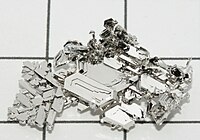
Transiently thermoresponsive polymers and their applications in biomedicine.
Sign Up to like & getrecommendations! Published in 2017 at "Chemical Society reviews"
DOI: 10.1039/c6cs00748a
Abstract: The focus of this review is on the class of transiently thermoresponsive polymers. These polymers are thermoresponsive, but gradually lose this property upon chemical transformation - often a hydrolysis reaction - in the polymer side… read more here.
Keywords: applications biomedicine; transiently thermoresponsive; polymers applications; thermoresponsive polymers ... See more keywords

Gel scaffolds and emerging applications in biomedicine
Sign Up to like & getrecommendations! Published in 2022 at "RSC Advances"
DOI: 10.1039/d2ra00924b
Abstract: Nowadays, gels are formed by small molecules self-assembling under the influence of various non-covalent interactions. They can be easily perturbed, which allows for the careful tweaking of their properties. They are kinetically confined, and following… read more here.
Keywords: scaffolds emerging; emerging applications; applications biomedicine; gel ... See more keywords

Chitosan-Based Hydrogels for Bioelectronic Sensing: Recent Advances and Applications in Biomedicine and Food Safety
Sign Up to like & getrecommendations! Published in 2023 at "Biosensors"
DOI: 10.3390/bios13010093
Abstract: Due to the lack of efficient bioelectronic interfaces, the communication between biology and electronics has become a great challenge, especially in constructing bioelectronic sensing. As natural polysaccharide biomaterials, chitosan-based hydrogels exhibit the advantages of flexibility,… read more here.
Keywords: chitosan based; bioelectronic sensing; food safety; applications biomedicine ... See more keywords

Hydrogels: Properties and Applications in Biomedicine
Sign Up to like & getrecommendations! Published in 2022 at "Molecules"
DOI: 10.3390/molecules27092902
Abstract: Hydrogels are crosslinked polymer chains with three-dimensional (3D) network structures, which can absorb relatively large amounts of fluid. Because of the high water content, soft structure, and porosity of hydrogels, they closely resemble living tissues.… read more here.
Keywords: applications biomedicine; properties applications; medicine; hydrogels properties ... See more keywords

Molecularly Imprinted Nanomaterials with Stimuli Responsiveness for Applications in Biomedicine
Sign Up to like & getrecommendations! Published in 2023 at "Molecules"
DOI: 10.3390/molecules28030918
Abstract: The review aims to summarize recent reports of stimuli-responsive nanomaterials based on molecularly imprinted polymers (MIPs) and discuss their applications in biomedicine. In the past few decades, MIPs have been proven to show widespread applications… read more here.
Keywords: stimuli responsive; nanomaterials stimuli; applications biomedicine; molecularly imprinted ... See more keywords